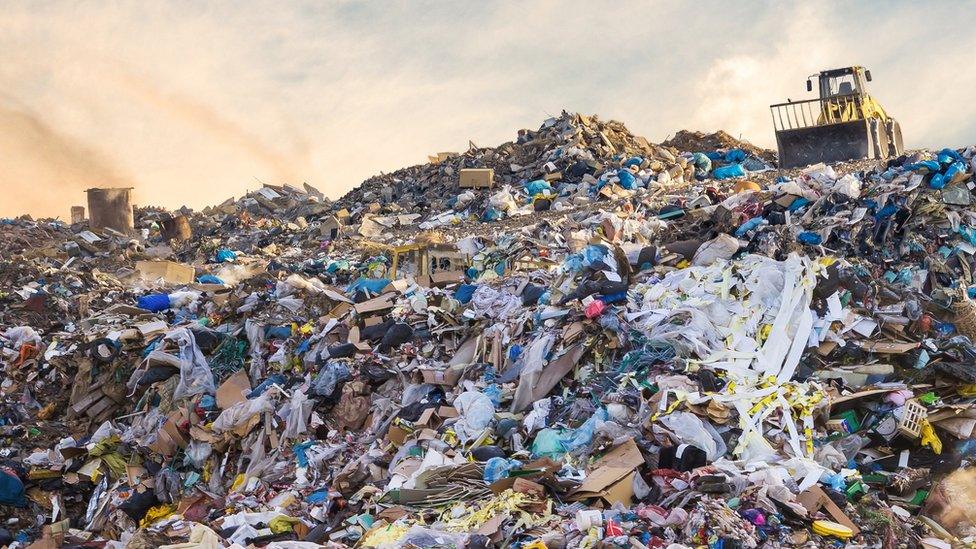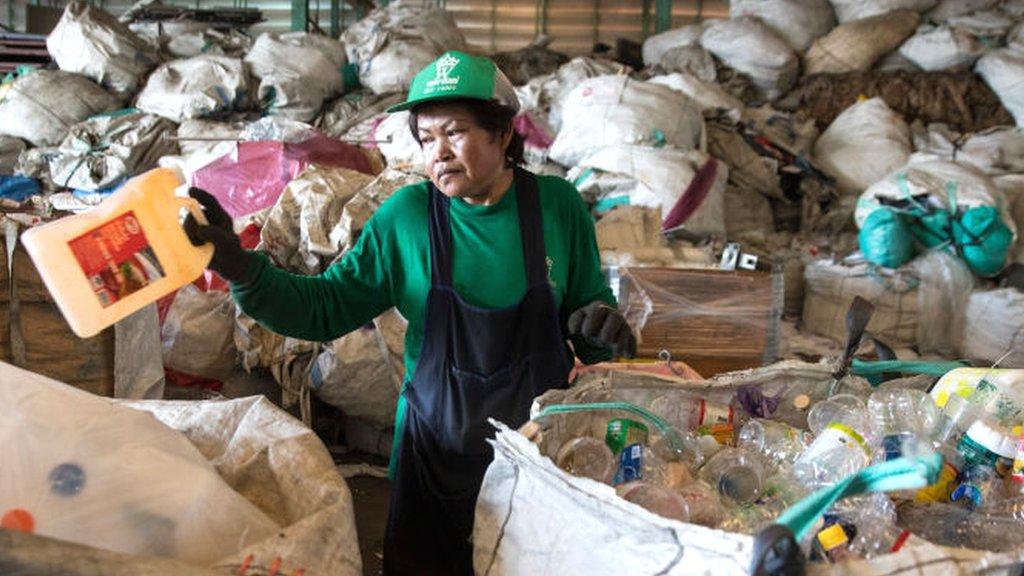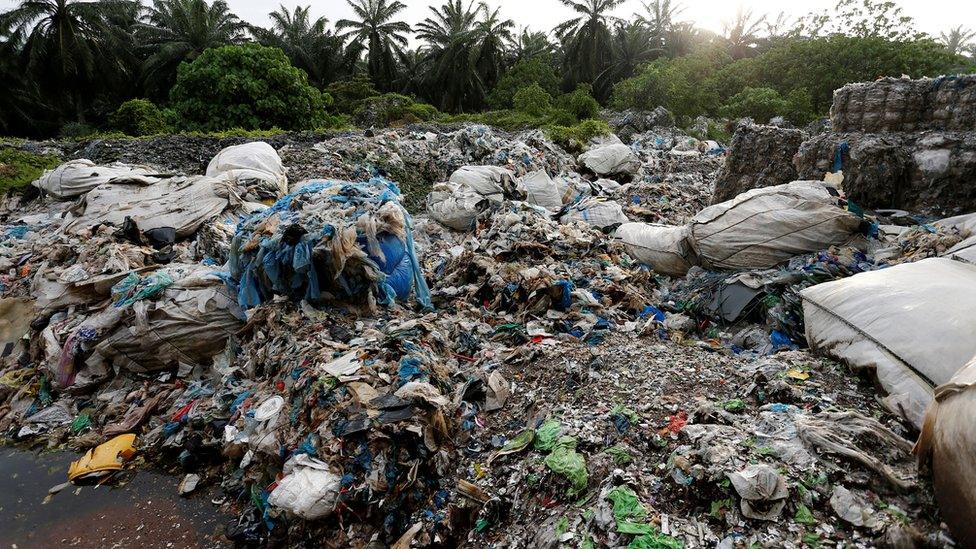UK using 1.2 billion tonnes of material a year
- Published

The UK is using 1.2 billion tonnes of materials a year – that’s the equivalent of 18.5 tonnes of material for every person in the country.
The materials include food, timber products, metals, construction materials and fossil fuels.
They are vital to the economy, but the figures show the UK is increasingly reliant on importing its materials, especially from China.
Almost 80% come from abroad, the Office for National Statistics numbers show.
The statistics matter because extracting materials from the environment uses a great deal of energy, typically generated by burning fossil fuels.
Consumption increasing
The UK is signed up to international agreements to reduce its consumption of materials in an attempt to protect the natural world and combat climate change.
But, despite those agreements, the figures show Britain’s material consumption has gone up slightly, not down.
What’s more, the amount of material generated in the UK itself has slumped to a new low - just over a fifth of the total we use.
That means more is being shipped from China and other developing nations, which supply the vast majority of the material we use.
And they object to being blamed for the carbon emissions that are generated when meeting our needs.
The figures show that the UK’s material “footprint” is now 30% higher than it was in 1990.
They were partially compiled by the University of Leeds, which says the UK has "outsourced" its environmental pressures to other countries.
Professor John Barrett from Leeds says the government should focus on reducing the flow of resources into the UK, if it wants to reduce CO2 emissions. He said that would be cheaper and more effective than trying to help industry save energy.
“Resource efficiency improvements are twice as effective as industrial energy efficiency measures but most of the UK government funds ... are aimed at industrial energy efficiency," he told the BBC.
The government has been approached for a comment.
- Published25 October 2021

- Published20 January 2020

- Published15 January 2020
